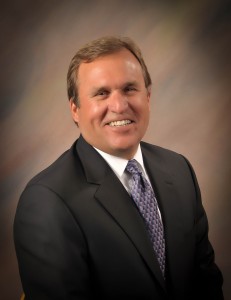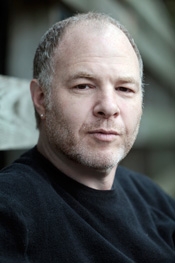As awareness of domestic violence escalates after video surfaced of NFL player Ray Rice knocking out his fiancee, Janay Rice, in an Atlantic City elevator, a similar drama plays out in South Africa: the trial of Paralympic athlete Oscar Pistorius.
Pistorius has been found not guilty of murdering his girlfriend, Reeva Steenkamp, in February 2013, though he was found guilty of the lesser charge of culpable homicide, which is equivalent to manslaughter here in the United States. (He’ll be sentenced in October; jail time is a possibility. October 21 update: Pistorius was sentenced to five years in prison for the crime, plus he received a suspended three-year term on firearms charges.) Judge Thokozile Matilda Masipa said she believed that when Pistorius fired at Steenkamp through a closed bathroom door, he truly believed that he was aiming at intruders. (Just three weeks before her death, Steenkamp had told Pistorius that she was “scared” of him.)
NO MORE talked to three leaders in the field — a pioneering prosecutor, the former lieutenant of America’s largest domestic violence investigative unit, and the founder of Mentors in Violence Prevention — to get their take on the case.
 Casey Gwinn
Casey Gwinn
President of the National Family Justice Center Alliance and former City Attorney of San Diego; author of Dream Big: A Simple, Complicated Idea to Stop Family Violence:
The Oscar Pistorius case is not unique. Yes, he’s a double amputee and an Olympian. But if you look inside the case, the dynamics are consistent with domestic violence homicides that happen every day, all around the world.
Here you have someone who has a lot of internalized rage. Pistorius had a traumatic childhood, and as is typical, it has produced internalized rage. Add to that someone with a sense of power, control, and entitlement — someone who has never faced consequences — and this case isn’t surprising. It’s what I saw day in and day out as a prosecutor.
Still, I’m seeing a lot of cognitive dissonance in this case: How can this person who is driven and focused, who has accomplished so much, be guilty of this crime? How can he be the monster the prosecutor is describing? It’s similar to the O.J. Simpson case in that way.
Unfortunately, this kind of crime happens every day. I wish we were as obsessed over the death of every woman.
People think he must be innocent because he’s so heartbroken and devastated. The fact that he can cry convinces me of nothing. I’ve watched batterers weep in court my entire career.
Others wonder how Reeva could be scared of him and still be in love with him. Why stay with him? I think that, on the night she was killed, she finally came to grips with who he was. She ran into the bathroom to get away from him, and his rage erupted. When you peel away everything, his bereavement, his celebrity, you’re left with a man with rage issues who was never held accountable. His choice was to pull a trigger.
It is deeply troubling that one human being, whether a judge or not, will allow Oscar Pistorius to avoid accountability for murder. This outcome is a result of the biases of the judge toward the evidence and the way the judge is examining each element of the case. In my 20 years as a prosecutor, I rarely agreed to a “bench trial” because I was always concerned that judges would be far too analytical and nuanced in their examination of the evidence. I always loved the common sense of juries and their willingness to be practical in their review of the evidence and the story of the abuser. In South Africa, the prosecutor does not have the benefit of the jury trial system.
I wish I could say this could be a watershed case, but it isn’t. During the O.J. Simpson case, we watched public awareness rise for about a year or 18 months. Then it faded away. I don’t think it changed the culture.
Unfortunately, this kind of crime still happens every day. I wish we were as obsessed over the death of every woman.
 Jackson Katz
Jackson Katz
Founder and director of Mentors in Violence Prevention and author of The Macho Paradox:
This is a milestone in the history of post-apartheid South Africa. The domestic violence issue has now been highlighted in a very public way. The fact that a celebrity is involved underscores that violence is something that happens everywhere—not just in poor townships.
This is not a “poor black man” problem. Pistorius is a wealthy white man, with power and privilege. Pistorius made such a world-famous triumph over his disability. He became the face of the new South Africa, a source of national pride.
Part of the mythology surrounding sexual assault and domestic violence is that they are confined to poor or working-class communities. This is testimony to the fact that it cuts across those lines. It’s about masculinity, not class.
In the past, there was a subtext about domestic violence: Blame it on the outsider. Blame it on the marginalized. We can’t do that now.
Sociologically, it’s interesting, too. A black woman is the lead judge. Here you have a black woman sitting in judgment of an elite white man. Thirty years ago, this was unthinkable. The level of power dynamics has been completely reversed.
In the past, there was a subtext about domestic violence: Blame it on the outsider. Blame it on the marginalized. We can’t do that now.
 Mark Wynn
Mark Wynn
Domestic violence speaker and educator; former lieutenant of the Domestic Violence Division, Nashville Police Department:
I worked in the largest domestic violence unit in American history in Nashville. I’ve spent a lot of time trying to educate people and shape the policy and procedures of domestic violence.
The term “crime of passion,” which has been used in this case, should be stricken. It reduces violence against women into a lover’s quarrel. It gives people like Pistorius language to use. The words passion and crime don’t belong together. We have an inability to talk about these crimes accurately.
This is horrible, because when you add it up, there are 2,000 people killed every year in domestic violence incidents. Every 18 months, we see as many people killed by domestic violence as we did on 9/11. And these offenders are no different than terrorists.
When you add it up, there are 2,000 people killed every year in domestic violence incidents.
When we look at what needs to change — government policy, education — this doesn’t happen overnight. Women have been slaughtered since the beginning of time, and only in recent history have we even begun to try to understand it. The first women’s shelter opened in 1974, in my lifetime.
We can’t get frustrated because things don’t change immediately and people don’t leave immediately. But what we can do right away is this: Change how we talk to victims. People say: Why didn’t she leave? Victims feel trapped. We’ll never know what Pistorius said to her the night she locked herself in the bathroom. But I can tell you from experience why people run away: They’re afraid.
If someone comes up to you and asks for help, be kind enough not to judge. I have no doubt that Reeva loved this guy. That’s what DV offenders do so well. They play on your worth, your beliefs. Victims do go back. But leaving is not an event. It’s a process. Public awareness about that has to change.